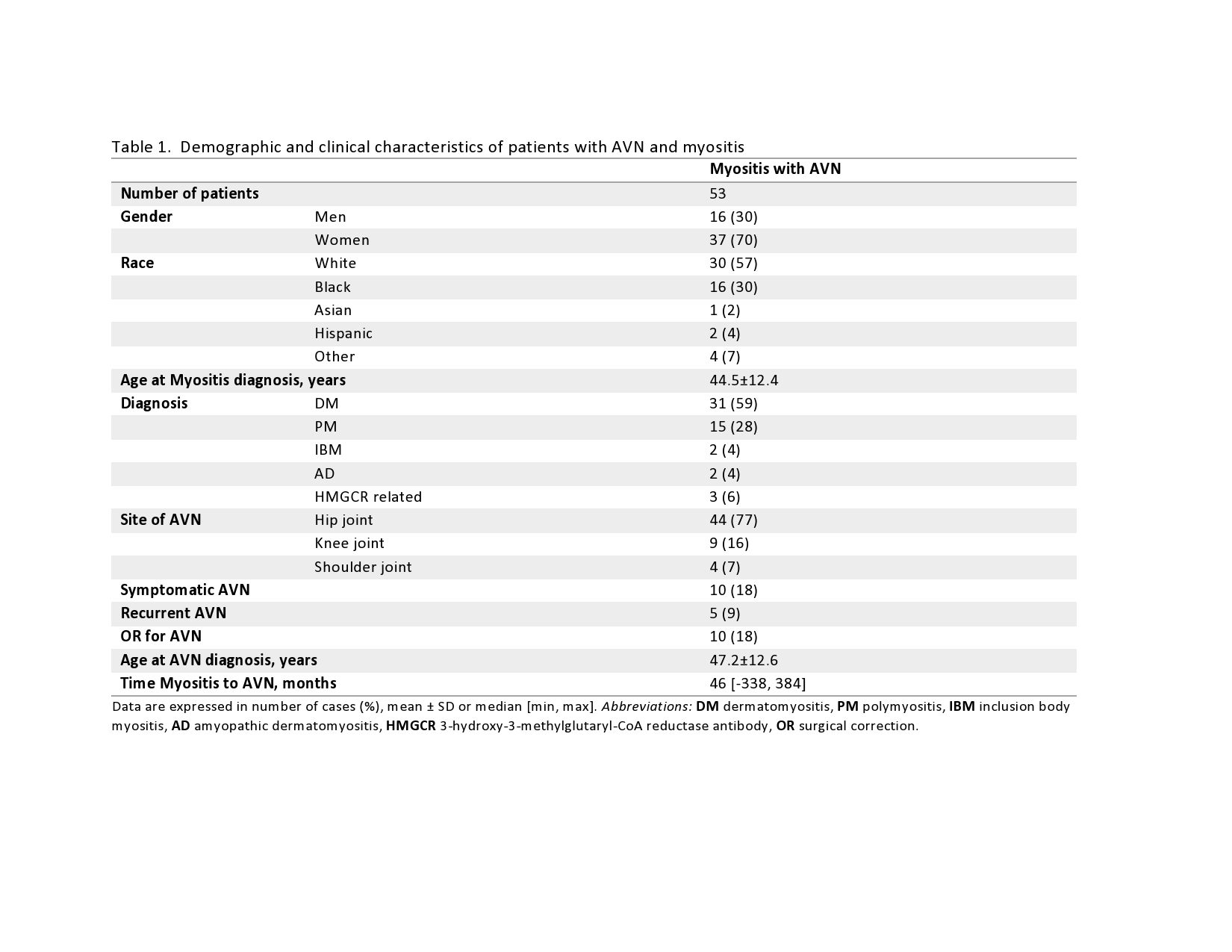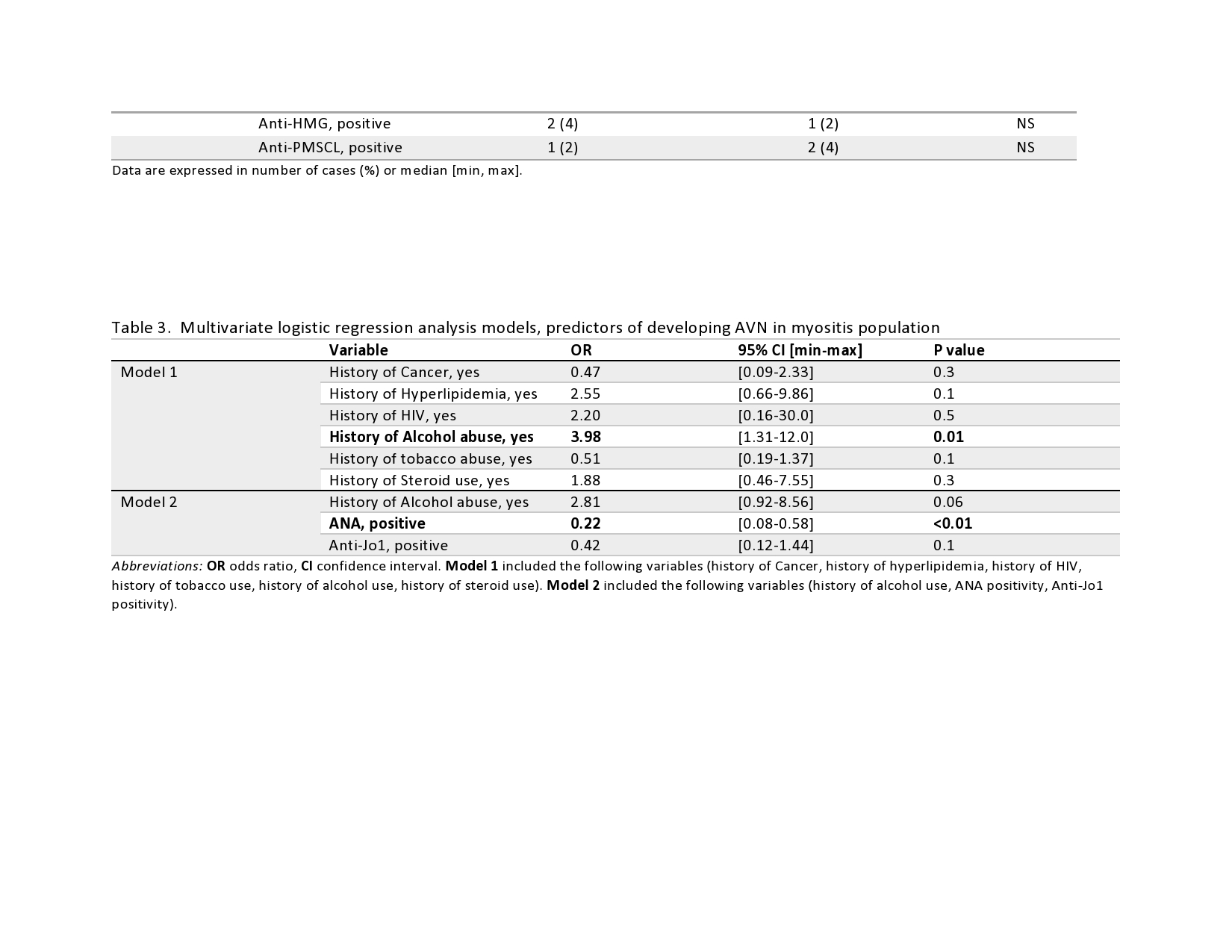Session Information
Session Type: Poster Session C
Session Time: 9:00AM-11:00AM
Background/Purpose: To assess the prevalence of avascular necrosis (AVN) in a large cohort of patients with idiopathic inflammatory myopathies (IIM) and define the major associated risk factors.
Methods: We retrospectively reviewed the electronic medical records of all patients with a definitive diagnosis of IIM in our cohort, querying for keywords (“avascular necrosis”, “AVN”, “osteonecrosis”). Pertinent demographic, clinical (including major risk factors for AVN), serologic and imaging data were collected. A matched group of patients without AVN was then selected for comparison (matched for sex, age at IIM diagnosis ± 2 years, and duration of IIM ± 1 year).
Results: A total of 1680 patients were diagnosed with IIM between 2003 and 2017. Fifty-three patients developed AVN, with a global prevalence of 3.1% (53/1680). Musculoskeletal magnetic resonance imaging (MSK MRI) was available for 1085 patients and AVN was present in 48 patients, with a relative prevalence of 4.4% (48/1085). The majority of patients were Caucasian females (57%) with a mean age at diagnosis of 44.512.4 years. 59% had dermatomyositis (DM), 28% had polymyositis (PM). The median time from diagnosis of IIM to diagnosis of AVN was 46 months. Only 18 % were symptomatic. Hip joint was involved in 77%, Knee joint in 16% and Shoulder joint in 7%. A history of alcohol use was the only risk factor that was statistically associated with AVN (36% vs 13%; OR=3.98, CI [1.31-12.0], p=0.01). Corticosteroid use was not associated with an increased risk of AVN.
Conclusion: Although mostly asymptomatic, the global prevalence of AVN in IIM was 3.1% but the prevalence on MSK MRI was 4.4% and alcohol use was the only risk factor for AVN development.
To cite this abstract in AMA style:
Bourji K, Mecoli C, Paik J, Albayda J, Tiniakou E, Kelly W, Lloyd T, Mammen A, Christopher-Stine L. Avascular Necrosis in the Hopkins Myositis Cohort: A Single Center Experience [abstract]. Arthritis Rheumatol. 2020; 72 (suppl 10). https://acrabstracts.org/abstract/avascular-necrosis-in-the-hopkins-myositis-cohort-a-single-center-experience/. Accessed .« Back to ACR Convergence 2020
ACR Meeting Abstracts - https://acrabstracts.org/abstract/avascular-necrosis-in-the-hopkins-myositis-cohort-a-single-center-experience/



